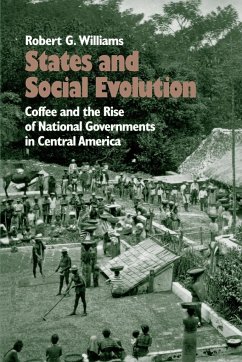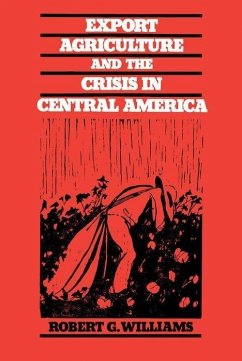
States and Social Evolution
Coffee and the Rise of National Governments in Central America
Versandkostenfrei!
Versandfertig in 1-2 Wochen
47,99 €
inkl. MwSt.

PAYBACK Punkte
24 °P sammeln!
The national governments of Central America were constructed between 1840 and 1900, a time when coffee was transformed from a botanical curiosity to the region's most important export. In spite of their geographic proximity, the national governments that emerged were strikingly different, from Costa Rica's participatory democracy to Guatemala's military despotism. Robert Williams explores Central America's political diversity by following the story of coffee through the nation-building period. With a sensitivity to cultures and institutions before the advent of widespread coffee cultivation, h...
The national governments of Central America were constructed between 1840 and 1900, a time when coffee was transformed from a botanical curiosity to the region's most important export. In spite of their geographic proximity, the national governments that emerged were strikingly different, from Costa Rica's participatory democracy to Guatemala's military despotism. Robert Williams explores Central America's political diversity by following the story of coffee through the nation-building period. With a sensitivity to cultures and institutions before the advent of widespread coffee cultivation, he reveals the various ways that land, labor, and capital were harnessed as coffee advanced from one locale to the next, provoking cultural clashes and sometimes violent reactions as it altered landscapes, people's lives, and even governments. Through careful scrutiny of a tiny region and a single crop in a restless age, States and Social Evolution develops a theory of state formation relevant to other places and times as well.












